Hijacked by politics, DEI is under attack in the US. Where does it leave the global movement for inclusive workplaces?
While the term "diversity, equity and inclusion" has become politically charged in the United States, companies and experts say companies elsewhere around the world continue to embrace inclusivity, in ways big and small.

In Singapore, experts and business leaders said DEI is interpreted quite differently than in the US, and the movement is still making strides. (Illustration: Nurjannah Suhaimi)

This audio is generated by an AI tool.
Once the buzzword of boardrooms and hiring pages all around the world, diversity, equity and inclusion – or DEI – was for years synonymous with a progressive workplace and something to be celebrated and encouraged.
In the United States, where the term first took root, DEI became a fixture in corporate recruitment policies, designed to offer equal opportunities to members of marginalised communities, particularly those who were Black, indigenous or people of colour (BIPOC).
But the tide has turned in recent years, as US conservatives including President Donald Trump have argued that the movement has resulted in the preferential treatment of certain groups over others.
So strong is the anti-DEI sentiment among his voter base that Mr Trump made it a point to target DEI initiatives in an executive order that he signed on the first day of his second term in the Oval Office. In it, he called DEI programmes implemented by his predecessor "illegal and immoral discrimination programmes".
Entitled "Ending Radical and Wasteful Governmment DEI Programmes and Preferencing", the order terminated the federal government's DEI efforts, including all DEI offices and related positions such as "chief diversity officer".
Falling in line with the current administration's direction, major global corporations that once boasted about their commitment to DEI, including the likes of Amazon and Meta, have quietly rolled back or updated the language in internal memos regarding their diversity-related initiatives.
In February, an internal memo at global professional services firm Accenture said that the company would be "sunsetting" the diversity goals it set in 2017, along with career development programmes for "people of specific demographic groups".
A New York Times analysis of annual financial filings in March reported a 60 per cent drop in the number of companies in the S&P 500 that had used the language "diversity, equity and inclusion" in these filings since 2024.
For example, Adobe, which had a commitment to "develop and invest in our partnerships with Historically Black Colleges and Universities and Hispanic-Serving Institutions" from 2021 to 2024, deleted that reference in 2025 and tweaked its statement to reflect a broader commitment to a "more diverse workforce that reflects Adobe's global footprint".
HOW DEI IS TAKING SHAPE ELSEWHERE
It is no exaggeration to say that corporate trends tend to spread globally as multinational corporations implement their policies across their offices worldwide. As such, there have been questions about whether the American shift away from DEI might be affecting how corporations elsewhere approach DEI too.
In March, US embassies in Europe even sent letters to major European Union (EU) corporations demanding that they comply with Mr Trump's executive order to scrap DEI programmes.
However the backlash was swift: European governments denounced these letters, with France's minister for equality between women and men and combating discrimination, Ms Aurore Berge, calling the letters a form of foreign interference. "It's out of the question that we'll prevent our business from promoting social progress," she said.
The Belgian government said in a statement that it was investigating "the legal consequences" for the companies that had received the letters.
"If contracts are terminated merely because a company is committed to diversity and inclusion, this could constitute a violation of the Vienna Convention on Diplomatic Relations," the statement said.
In fact, the EU has been a strong champion of DEI, baking the prohibition of discrimination on any grounds into its Charter of Fundamental Rights.
In 2023, the EU launched the Pay Transparency Directive to strengthen the principle of equal pay for work of equal value between men and women through pay transparency and enforcement mechanisms.
The directive includes provisions for employers to regularly report on the gender pay gap and gives rights to workers to request information about the average pay levels broken down by sex for the category of workers performing work of equal value to theirs.
EU member states are required to implement the directive by June 2026.
Speaking to Forbes, Ms Katja Toropainen, the founder of Inklusiiv, a global DEI consultancy based in Finland, said: "DEI in Europe looks very different from DEI in the United States.
"Public conversations in the US tend to be more vocal and politically charged. In Europe, the emphasis is often on social cohesion and equal opportunity."
In the United Kingdom, too, legislation is moving in the opposite direction from the US: Its parliament is in the process of beefing up the country's employment laws.
For example, the Equality (Race and Disability) Bill, if passed, will place an obligation on employers with more than 250 employees to report the pay gap within the company, building on an existing gender pay gap reporting obligation.
In Singapore, experts and business leaders said DEI is interpreted quite differently than in the US and the movement is still making strides.
"There isn't one universal DEI framework coming out of the US or Europe," said Ms Lyn Lee, the author of business leadership book Tiny Rice Grains and the former global chief DEI executive at energy and petrochemical multinational corporation Shell.
"What we typically see are multinational corporations with headquarters in those regions developing global DEI frameworks, which are then adopted and adapted across their markets."
For example, companies in Singapore often concentrate on a few key areas that reflect national priorities and the makeup of the local workforce, including gender representation, disability inclusion, bridging generational differences and fostering integration across different races, languages and cultures.
That said, the movement is still in its nascent stages in Singapore.
Case in point: only one Singaporean company, Singapore Airlines, made it to the global top 100 of the FTSE 2024 Diversity & Inclusion index, noted Dr Tania Nagpaul, senior lecturer of the human resource management programme at the Singapore University of Social Sciences (SUSS).
The Singapore Business Federation's 2024 National Business Sentiments survey found that only one in five businesses has DEI policies and provides community or cultural integration activities.
Only 37 per cent of large companies said they had structured DEI policies for workforce integration, and 18 per cent of small and medium-sized enterprises (SMEs) said the same.
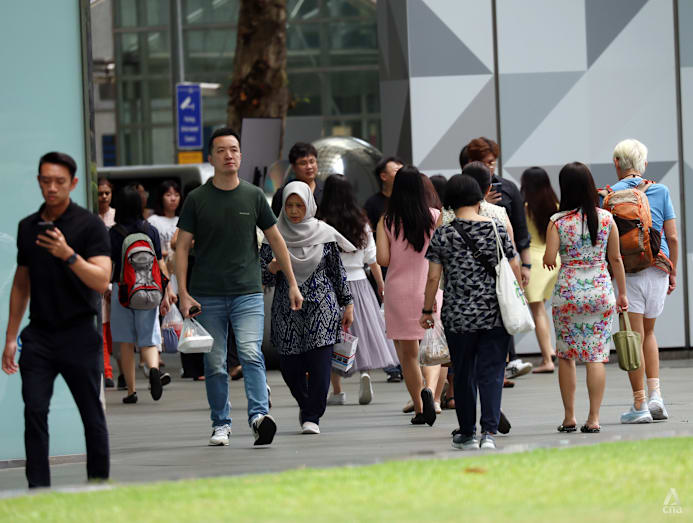
Nonetheless, experts said there is continued interest among corporations to embrace DEI in Singapore.
The challenge is helping them to figure out what that really means in the local context.
"We see more awareness than action," said Mr Clarence Ching, founder and executive director of Access Singapore, which connects financially, academically and socially disadvantaged students with companies for mentorship and career exposure.
"Companies increasingly acknowledge that DEI is not a Western import but a local necessity. Singapore's workforce is diverse by default, and workplaces that fail to embrace that risk losing talent.
"But many firms are still figuring out what DEI looks like in a Singaporean context."
Companies increasingly acknowledge that DEI is not a Western import but a local necessity – Singapore’s workforce is diverse by default, and workplaces that fail to embrace that risk losing talent.
But these companies are getting help from various consultancies and non-profit organisations that are working to translate DEI into practice at Singaporean workplaces, from coaching leaders on inclusive hiring to bridging employment opportunities for women from lower-income backgrounds, youths with limited access to education and persons with disabilities.
Even as the term comes under fire abroad, businesses, consultancies and non-profit organisations told CNA TODAY that there is broad recognition in Singapore that DEI – whether or not companies use that specific term – is not simply a trend that should be abandoned in the face of controversy, but is an important business strategy to stay resilient and retain talent in a rapidly changing world.
THE "OVERSIMPLIFICATION" OF DEI
Indeed, DEI was always meant to be much more than a pithy slogan. The former Shell chief DE&I officer Ms Lee said DEI at its core represents three independent pillars:
- Diversity: Valuing diversity of race, language, religion and culture. This also encompasses other differences such as diversity of thought, different abilities, neurodiversity, generational differences, gender identity and sexual orientation
- Equity: Different from equality, where everyone is given the same thing, equity recognises that different groups have differing starting points and may need varying support to achieve fair outcomes
- Inclusion: Values, culture and everyday behaviours that make people feel heard, respected and able to contribute fully
But in a Jan 21 executive order, separate from the earlier one, Mr Trump criticised government agencies, corporations and universities for adopting what he called "dangerous, demeaning and immoral race- and sex-based preferences under the guise of so-called 'diversity, equity and inclusion'".
Proponents of DEI argue that Mr Trump and other opponents of DEI misunderstand what the movement is about.
In the US, efforts to boost workplace diversity have been tied to affirmative action policies, which require federal contractors and public institutions to track the representation of under-represented groups and take measures to close those gaps.
Ms Lee, the author, said efforts to increase diversity and inclusion may have been oversimplified by critics and misunderstood as giving opportunities solely because individuals are underrepresented.
In a challenging job market, DEI has become an easy target: Some people from majority groups who have found it difficult to secure employment have blamed companies practising DEI of allegedly favouring minority groups when it comes to hiring.
For example, some DEI critics say "lifting" programmes, such as a sponsorship programme reserved for women, provide an unfair advantage to one group over others.
In the wake of Mr Trump's attacks on DEI, some US businesses have scrapped such programmes to avoid risking legal scrutiny, said Mr Edwin Seah, the director of Diversity and Inclusion for Singapore at Include Consulting, a global DEI consultancy based in Singapore.
But he noted that the intention of such programmes is to address decades of previous unfair treatment of marginalised groups, without which progress towards inclusion in the workplace would be very slow.
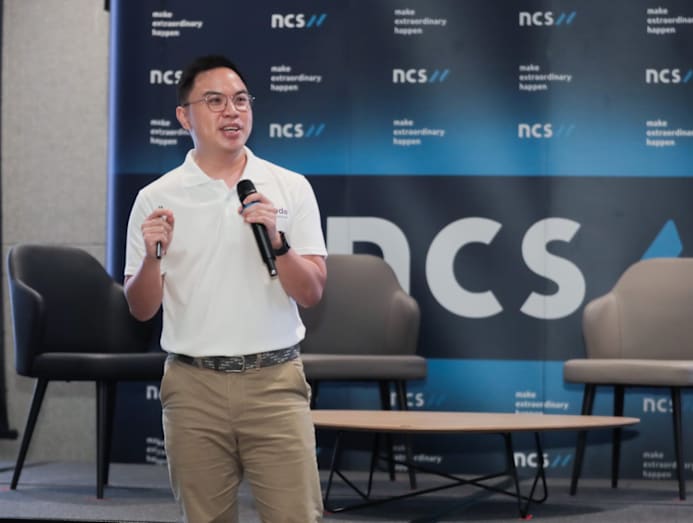
Dr Nagpaul from SUSS agreed that DEI has become a highly polarising and politically charged issue in the US because several sections of society, including right-wing conservatives and some corporate leaders, view it as "anti-meritocratic, performative quotas and woke culture".
This view, she added, is not confined to the West.
Some in Singapore may view DEI as "blaming" majority groups for having privilege, or as a tool for hiring and promoting under-qualified individuals just to fill diversity quotas.
This, in fact, is the opposite of what DEI aims to achieve, she said.
"If done correctly, DEI is meant to correct historical mistreatment of under-represented groups, steer us away from making sub-optimal hiring or promotion decisions and, above all, show compassion and care towards others regardless of their identity status."
DEI is meant to correct historical mistreatment of under-represented groups, steer us away from making sub-optimal hiring or promotion decisions and, above all, show compassion and care towards others regardless of their identity status.
Beyond being considered as a "moral or social imperative", diversity is a strategic and commercial decision, said Ms Lee.
"This is backed by extensive research, such as from McKinsey and the World Economic Forum, showing that diverse teams deliver stronger business performance," she noted.
Ms Natalie Craig, chief executive of global commercial real estate services firm Cushman & Wakefield in Singapore, said the company's DEI efforts have seen tangible benefits with higher engagement, stronger collaboration and better retention across teams.
"Over time, we’ve observed a positive shift: employees increasingly recognise that inclusion is about fair access to opportunity, not preferential treatment," she said.
WHAT DEI LOOKS LIKE IN SINGAPORE
What has been a loud and proud movement in the US has been a much quieter and more gradual shift in Singapore, business leaders and experts said.
Ms Kaylee Kua, executive director of charity Daughters Of Tomorrow, said DEI in Singapore "feels more grounded and relational", often looking less like a movement and more like small shifts in mindset.
"For instance, when companies adjust work arrangements for caregivers, or create roles that recognise lived experience – that’s DEI in our context," said Ms Kua.
Daughters Of Tomorrow works with employers to improve equity and inclusive hiring practices at the workplace, supporting women from lower-income backgrounds who want to work but face multiple barriers such as caregiving responsibilities, a lack of confidence or limited networks.
Mr Ching of Access Singapore said DEI in Singapore is much less about polarised identity politics, and more about practical issues such as ensuring students from lower-income backgrounds get career exposure, or making sure workplaces are accessible to people with disabilities.
Where DEI programmes in the US and the West have often focused on correcting systemic injustices tied to race and gender, Singapore’s version is "less adversarial" and shaped by its social fabric, which is already deeply rooted in multiracial harmony, meritocracy and a strong emphasis on education as a leveller, he added.
Ms Cassey Koh's story shows what DEI in action looks like in Singapore.
The 59-year-old could not have served 37 years at Maybank Singapore without the specialised software that the company provides to assist her through her visual impairment, nor without her accommodating colleagues.
"Many times, when I encounter problems like if the screen is too small, my colleagues will always help me, because they know I can't see so well," she said.
"My colleagues and my bosses understand me and know how much I can do. (They understand that) it's not like I don't want to do (something) – I want to do it, but it's beyond my limit."
Head of human capital at Maybank Singapore, Mr Wong Keng Fye, said the bank's commitment to diversity, equity, inclusion and belonging is borne out through transparent data, inclusive talent development, fair pay and zero tolerance for discrimination.
As a Malaysian bank with a regional footprint, its DEI strategy is tailored to Singapore's social and cultural context, focusing on groups that "may require stronger support", such as women, female entrepreneurs, persons with disabilities, youth and retirees.
Beyond aligning with tripartite guidelines on re-employment, Mr Wong said the firm supports diverse groups through initiatives such as the Women Mentor Women Council and a work placement programme for persons with disabilities.
Another Maybank employee, 49-year-old Cherlyn Yeng, who has dwarfism, said DEI is visible not only in physical adjustments to the office such as high chairs in the pantry, but also in the culture of empathy that allows staff to manage work-life challenges.
As a team manager, she puts DEI into practice to help her team members too. To her, this means exercising discretion and creating a family-friendly atmosphere that allows her staff to do their best work.
For example, Ms Yeng once adjusted a young mother’s schedule after noticing she was struggling and learning that her husband is frequently sent overseas for work, sometimes at the last minute.
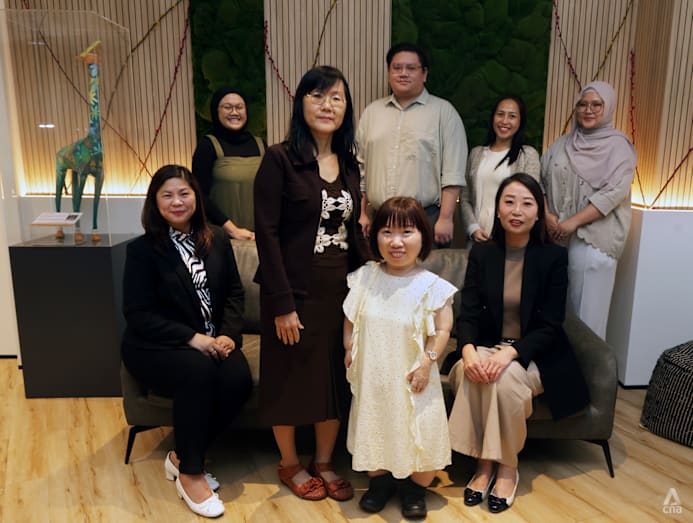
As part of a strategy to drive inclusion, HSBC has moved away from single-strand programmes and targets for particular demographics, to avoid a perception of unfair decision-making.
Its DEI efforts include removing systemic and structural barriers, such as having live captions enabled in various languages for online video calls and training, allowing colleagues to listen in their native languages.
In Singapore, HSBC has six employee resource groups surrounding ethnicity and cultural awareness, disability confidence and support, career development, gender and lesbian, gay, bisexual, transgender and queer (LGBTQ+) employee engagement and sustainability.
While large multinationals may appear more DEI-friendly thanks to their visible, formal frameworks, smaller local firms often practise inclusion in more organic ways – emphasising values, flexibility and lived culture over branded programmes, business leaders said.
For example, if you apply for a job at TriOn & Co, the Singaporean strategic communications consultancy will not ask for your educational qualifications or last-drawn salary during the hiring process, said co-founder and chief strategy officer Charu Srivastava.
Instead, the firm evaluates candidates based on their performance and interactions with the hiring manager and team.
Ms Srivastava said DEI at her firm also takes the form of a comprehensive leave policy that covers caregiving beyond next-of-kin to include partners and pets, as well as menstruation issues that might impact one's ability to work.
"Along with these policies and guidelines, we actively have conversations with the team to explain the rationale and intention for what we champion to get deeper support and buy-in for having an unbiased workplace," she said.
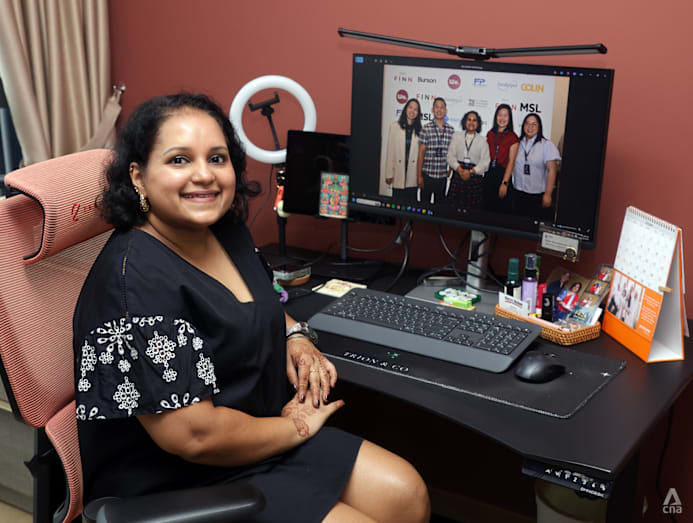
For Mr Oliver Goh, founder of homegrown interior build firm Ngee Koon and co-founder of commercial design firm LFA studio, DEI is "rooted in core values".
For example, both his firms offer up to two days of work-from-home each week and employees can choose from three staggered shifts, from 8.30am to 4.30pm up to 10.30am to 6.30pm, to accommodate caregiving needs.
Mr Goh, whose firms have a 50-50 gender balance made up of six nationalities from all over Asia, noted that attitudes towards DEI have improved in the traditionally male-dominated built environment industry.
"We remain steadfast in our DEI journey regardless of shifting narratives overseas. DEI here is about purpose, not politics – an essential foundation for innovation, collaboration, and sustainable growth across our teams, clients, and communities," said Mr Goh.
LOCALISING DEI EFFORTS
Despite the global scrutiny surrounding DEI, Singapore’s approach has remained largely insulated from the ideological battles playing out elsewhere, business leaders and experts said.
Many said localisation and Singapore's unique cultural context have allowed DEI to evolve on its own terms.
Dr Nagpaul from SUSS said top corporations in Singapore such as GIC, DBS, Grab, Keppel Group, Singtel and Singapore Airlines "seem unfazed" by the anti-DEI waves and have not pulled down DEI webpages or reframed their DEI policies like some of their American counterparts have.
The different political and economic context offers some protection against the backlash that DEI has garnered in the US.
DEI efforts here are also backed by a growing legal and institutional framework geared towards supporting fair and progressive employment practices, experts noted.
In January, lawmakers unanimously supported the passing of the Workplace Fairness Bill, which established age, nationality, sex, race and disability as some of the areas where workers are protected against discrimination.
A draft law outlining how workers could file discrimination claims under the new Act was tabled in parliament in October.
Successful DEI initiatives in Singapore's context also have to adhere to the guidelines on Fair Employment Practices set out by the Tripartite Alliance for Fair & Progressive Employment Practices (TAFEP), noted Mr Seah from Include Consulting.
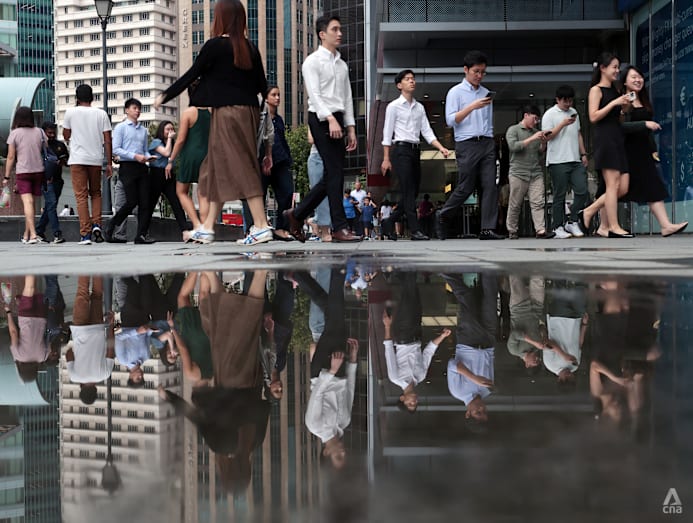
Ms Eunice Seow, head of marketing, communications and sustainability at global business process outsourcing service firm TDCX, said Singapore's multicultural society provides an "incredible foundation" for DEI efforts, and she has noticed employees are now more engaged and vocal about inclusion.
In the Singapore office, there are flexible work arrangements for caregivers and people with disabilities, as well as mandatory DEI training for all employees.
Every quarter, the firm also hosts engagement programmes spanning activities and campaigns that promote gender equity, cultural awareness, and allyship organised by local engagement leaders.
There has been steady progress towards a disability-inclusive hiring landscape since SG Enable was founded in 2013, said Mr Edward Chew, senior director of employment and lifelong learning group at SG Enable.
SG Enable is the focal agency for disability and inclusion and provides information on disability-inclusive employment for both persons with disabilities and progressive employers.
Citing the Manpower Ministry's 2024 Labour Force Study, Mr Chew pointed to the fact that the employment rate of persons with disabilities aged 15 to 64 has risen steadily to 33.6 per cent in 2024, up from 28.2 per cent in 2019.
Some employers, like Holiday Inn Singapore Little India and Holiday Inn Singapore Atrium, have hired persons with disabilities in roles ranging from administration to reception and housekeeping, and collaborated with SG Enable to develop strategies to help these employees feel more empowered at work.
For example, staff can use a pictorial task list book to streamline instructions and help them understand their tasks easily, said Mr Chew.
TURNING AWARENESS INTO ACTION
Despite the growing number of DEI initiatives across companies and industries, experts and non-profit organisations say that inclusivity in Singapore remains nascent and not all employers are moving at the same pace.
According to Jobstreet's Hiring, Compensation and Benefits 2025 report for Singapore, 42 per cent of organisations surveyed said they have already implemented initiatives to promote workplace diversity and 33 per cent are considering adoption within the next 12 months.
However, 25 per cent of the companies surveyed also said they would not be adopting any DEI initiatives in the next 12 months, citing the absence of government mandates or regulations, the uncertain return on investment and a lack of knowledge or access to effective DEI strategies as the key reasons.
"Our data suggests that some employers are still in the early stages of understanding and engaging with DEI, and adoption remains uneven across organisations," said a spokesperson for employment marketplace operator Jobstreet by SEEK.
Mr Seah from Include Consulting noted that multinational corporations have generally been more receptive to DEI initiatives, especially if their head office is located in a country with regulatory requirements around DEI.
These firms also have bigger budgets to allocate to DEI, while SMEs tend to view DEI initiatives as something "nice to have" when they have more resources to allocate, he added.
"We find greater uptake in industries that struggle to attract talent overall or have to compete for a small pool of qualified candidates, for example, technology-based companies typically have drives around gender representation and inclusion," said Mr Seah.
At the same time, sensitivities remain, he added. Where global DEI frameworks often prioritise LGBTQ+ inclusion, he said many workplaces in Singapore "feel uncomfortable" with overt strategies in this area and are cautious of cultural norms.
Another barrier to companies adopting DEI measures here is a "strong narrative of meritocracy": Singapore's dominant ethos of individual academic and economic achievement can make people feel defensive when discussing social inequities, said Mr Ching from Access Singapore.
But things are changing, he added, as he has noticed DEI conversations moving beyond human resources departments and younger employees asking "hard questions" about fairness and belonging.
"The appetite is there, but organisations still need support to translate intent into consistent practice," said Mr Ching.
Going forward, Mr Seah said, one way for companies here to safeguard DEI is to focus on "levelling" activities over "lifting" activities.
"Many companies in Singapore have too strong a focus on 'lifting' programmes, and this can also be problematic," he said, noting that women’s leadership initiatives, for example, can sometimes imply that women themselves need fixing rather than the systems that hold them back.
"Levelling" programmes, meanwhile, means addressing structural issues such as promotion bias, where men are often advanced on potential while women must repeatedly prove performance.
There is also a definite shift towards greater support for diverse needs such as those of caregivers, as the pandemic prompted many to reconsider what flexibility and empathy looks like at work, said Ms Kua from Daughters Of Tomorrow.
One area to focus on next, she said, is the socioeconomic inclusion of those who have limited access to resources and opportunities.
"The women we work with often tell us that what they want isn't charity, but opportunity," she said.
"DEI also goes beyond the hiring process into talent retention. Career advancement, psychological safety, respect and mentorship are also key areas where DEI can help to improve outcomes."
The women we work with often tell us that what they want isn’t charity, but opportunity.
Agreeing, Ms Christine Fellowes, co-founder of Nineby9, a Singapore-based non-profit that drives research and data-led advocacy to create greater opportunities for women in the Asian workforce, said there is still work to be done in translating awareness into sustained action on gender equity.
While Singapore may have strong legislative support for working parents, high female participation in tertiary education and visible female leadership in banking and professional services, gaps remain in mid-career retention.
Women disproportionately exit the workforce between the ages of 30 and 45, and progression to senior leadership remains challenging, said Ms Fellowes, who added that many organisations track representation numbers but lack deeper metrics on retention, advancement and pay equity.
"In addition, we see middle management engagement is often a problem area, whereby senior leaders may champion gender equity, but middle managers and male allies need practical tools and frameworks."
Para equestrian and human resource executive at Cushman & Wakefield Maximillian Tan, 37, said accessibility and inclusion are "better now than four or five years ago", though his day-to-day interactions have shown him that "a large portion" of people still lack an understanding of disabilities.
At his workplace, Mr Tan, who has cerebral palsy, is chair of the Leading with Education & Awareness of Disabilities (LEAD) chapter, which is part of the company's global employee resource groups network.
LEAD runs quarterly disability management workshops to help staff understand accessibility challenges, and Mr Tan said flexi-work arrangements and an accessibility accommodation policy create an environment where managers see persons with disabilities as "professionals with potential".
"It’s encouraging to see individuals, organisations, and public agencies recognising the importance of an inclusive society. Initiatives by SG Enable and the TAFEP are positive steps, and I hope these frameworks eventually evolve into enforceable legislation for consistency and accountability," he said.
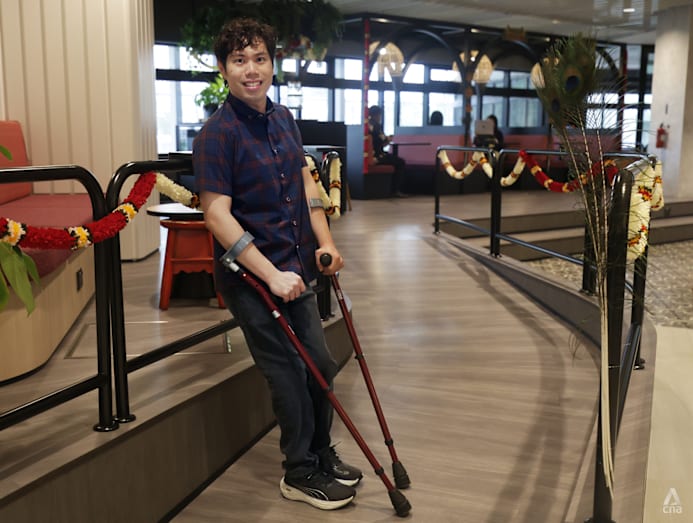
As Singapore’s understanding of inclusion deepens, experts say the next frontiers in DEI will lie in how workplaces respond to emerging priorities such as neurodiversity and technological disruption from artificial intelligence.
And while legislation and organisational policies play a big part in fostering more diverse, equitable and inclusive workplaces, many said that real progress boils down to every individual's effort.
Ms Lee, the former DEI chief at Shell, said a mindset shift is needed from providing workplace accommodations from a place of pity and sympathy to viewing inclusion as a way to access the best talent there is.
DEI in Singapore is thus not about "how loudly an organisation talks about it", said Ms Lee, and may be called different names across companies, but every company and individual can contribute to making inclusion real.
She said: "You may not be a line manager or CEO, but who are the five people around that you can impact? What actions can you take to make your workplace more inclusive, or create a greater sense of belonging?"




















